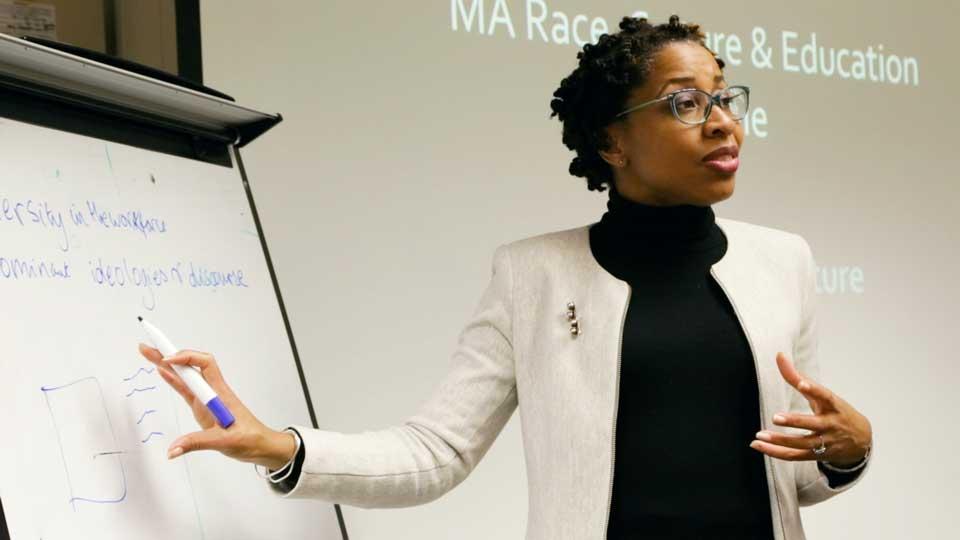Black female academics ‘face racism and bullying’ on path to professorships
Primary page content
Black female academics face racism and bullying as they progress their careers towards a professorship in UK universities, according to a new report from an academic at Goldsmiths, University of London.

Report author Dr Nicola Rollock
For the study Dr Nicola Rollock examined, through one-to-one interviews, the experiences of 20 of the 25 Black female Professors in the UK (Black in this context refers to those of African, Caribbean and other Black background).
Those interviewed for the study reported that a culture of explicit and passive bullying persists across higher education along with racial stereotyping and racial microaggressions. Respondents gave examples of being ostracised by colleagues during meetings and social events and, unlike their white counterparts, needing to go out of their way to demonstrate their competence, experience and knowledge.
Respondents also criticised a lack of rigour and transparency in the promotion process and the behaviour of unsupportive or bullying heads of department which caused them to delay applying for promotion. They commented that some white female academics were seen to contribute to the exclusion of Black female academics despite expressing a commitment to feminism.
Dr Rollock, Reader in Equity & Education in Educational Studies said: “These reports of bullying and harassment ought to sit heavily on the consciousness of a sector that states it is committed to equality and diversity.
“These women have managed to reach Professorship despite these barriers. The question now surely must be: how many more Black female Professors would there be if such barriers did not exist in the first place?”
The report recommends that higher education bodies focus on creating a work environment where policies and processes are deployed in a fair and transparent manner to enable Black female academics to progress and succeed.
Its wide-ranging recommendations, aimed at both UCU and higher education institutions, include providing dedicated support for Black female academics, establishing clear and transparent progression criteria on the steps towards obtaining a professorship, and commissioning research into alternative routes to heads of department or line managers approving professorship applications. It also calls for UCU to establish a culture of no tolerance to bullying that speaks to explicit and subtle forms of harassment.
Dr Rollock said: “That these black female academics have reached professorship despite their experiences of racism, bullying and lack of support reflects their talent and sheer determination to succeed. Ambition should not be thwarted by discrimination.”
Dr Rollock was last week announced as the academic lead of a project at Goldsmiths to address the progression and attainment gap of Black, Asian and Minority Ethnic students at Goldsmiths.
Dr Nicola Rollock talks about the findings of her study